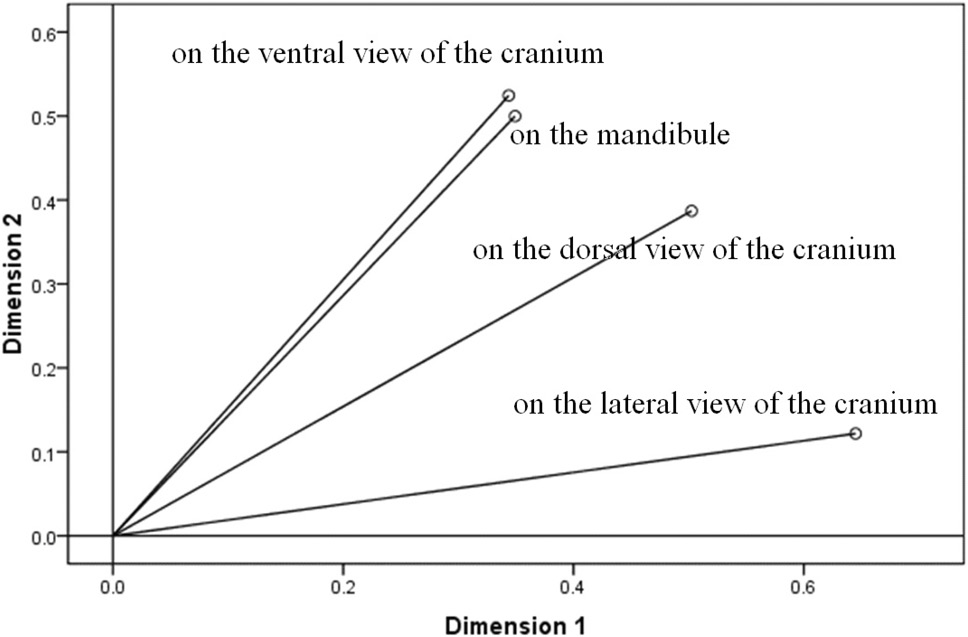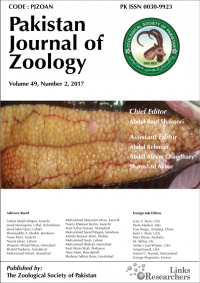Geometric Morphometry of Skulls Characteristics of Nine Species of Eothenomys
Geometric Morphometry of Skulls Characteristics of Nine Species of Eothenomys
Xiao-Ying Ren1, Di Zhang2 and Wan-Long Zhu1,*
Different view of Eothenmoys cranium and mandible with landmarks.
Deformation grids on four faces were generated thin plate spline (TPS) algorithm, which show the shape differences associated with the particular canonical variate in different species. A, E.fidelis; B, E. melanogaster; C, E. chinensis; D, E. proditor; E, E. custos; F, E. cachinus; G, E. eleusis; H, E. Miletus.
UPGMA trees showing morphometric affinity among populations calculated from pair-wise procrustes distances between consensus configurations of each species. A, similarities based on the dorsal view of the cranium; B, similarities based on the lateral view of the cranium; C, similarities based on the ventral view of the cranium, D, similarities based on the mandible. The below line was mean procrustes distances.
Scatter plot of Multidimensional Scaling analyzes, using whole skull shape of nine species with four faces.
Plot of dimension weights, using whole skull shape of nine species with four faces.















